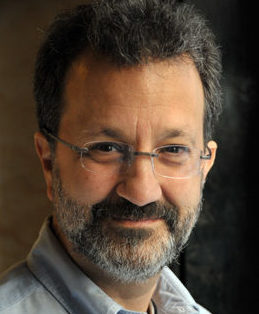Those of us concerned for the basic human rights of the physically and mentally disabled can easily be dismayed by this week’s Torah portion, Emor. For while Leviticus promises universal access to the sacred, this portion seems to restrict direct access to God to an ever- smaller subset of a tiny priestly minority.
This portion disqualifies any physically imperfect priest from performing the sacred service. “No man of your offspring throughout the generations who has a defect shall be qualified to offer the food of his God. No one at all who has a defect shall be qualified: no man who is blind or lame or has a limb which is too short or too long….. He shall not enter behind the curtain or come near the altar, for he has a defect. He shall not profane these places sacred to Me, for I the Holy One have sanctified them” (Lev 21:16, 23).
The Torah thus disqualifies disabled people from serving in the most sacred role. The rabbis went even further, extending the Torah’s prohibitions by disqualifying from Temple service any priest with an unusually-shaped head, who was bald or flat-nosed, whose eyes were too big or too little, whose body too large or too small, whose nose or ears not of optimal size (Mishnah Bechorot 7).
In effect, the rabbis excluded pretty much anyone who didn’t meet a mythic norm of physical perfection. Only priests who embodied some physical ideal were deemed worthy to represent the people before God.
Paradoxically, while Jewish tradition often equates holiness with physical perfection it also offers an antidote:
When the Jews left Egypt, almost all of them were disabled. How did that happen to be? They had been working with bricks and clay, climbing to the tops of buildings. Those doing the construction work would get to the upper levels of the building and a rock would fall on them and cut off their hands, or a beam or some clay would get into their eyes, blinding them. That’s how they became disabled. (Numbers Rabbah, Naso 7:1)
If each of us is to consider ourselves as if we ourselves had been enslaved in and left Egypt, according to this midrash each of us is also disabled. We’re all “blemished.”
Perhaps that’s why the rabbis so broadly extended the Torah’s prohibition of the disabled from divine service. In essence, they taught that if one person is too “defective” to approach God, we’re all too “defective.” Maybe by barring anyone with the slightest imperfection, paradoxically they meant to teach that Jewish life should never exclude anyone, on the basis of human flaws or limitations. In fact, the rabbis ordained a blessing upon seeing anyone with a physical oddity, which sees diversity as sacred, not a desecration: Baruch atah Adonai, Eloheinu melech ha-olam, meshaneh et ha-briyot. Blessed are You, Adonai our God, Creator of all, who varies creatures.
While this portion implies that being physically blemished is incompatible with approaching the Divine, the Torah’s deeper truth is just the opposite–that the flaws which make us human actually draw us closer to God. That’s why the rabbis teach that a sinner who does teshuvah is superior to a tzadik, a completely righteous person (BT Sanhedrin 99a). That’s why our sacred texts are replete with tales of deeply flawed human beings striving for improvement. The rabbis taught that none of us are perfect, physically or otherwise; holiness is found in our struggle to look beyond our blemishes to the sacred core within.
Towards the end of Emor, God instructs Moses to instruct all the people to bring pure, pressed olive oil for lighting the ner tamid, the perpetual light. Each of us contains something uncontaminated, a pure soul that burns constantly within each of us. May we, our society, and our world learn to overcome our fear of physical difference. May we finally come to see ourselves and each other as God sees us–not as blemished and unacceptable, but as stamped in the Divine Image and capable, at any moment, in any place, of rising to holiness.
Rabbi Marc Margolius is spiritual leader of West End Synagogue: A Reconstructionist Congregation on New York’s Upper West Side, and director of alumni programs for the Institute for Jewish Spirituality. He is a long-time social justice advocate and former poverty lawyer.


